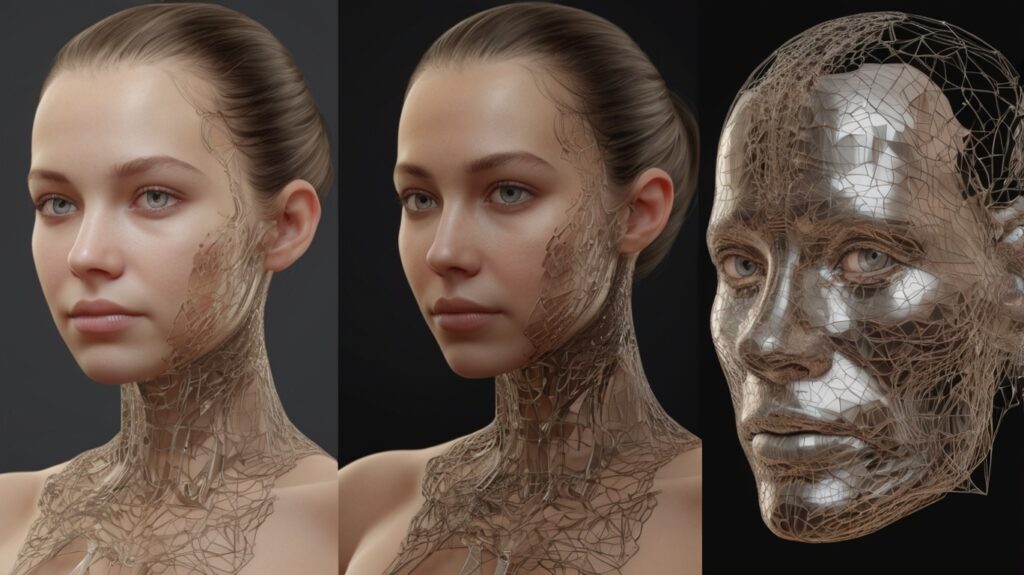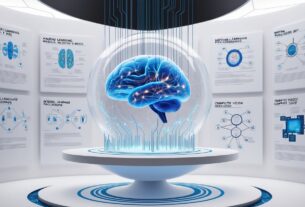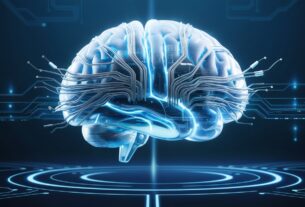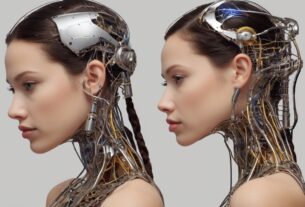Introduction
Generative AI:
The rapid advancement of Artificial Intelligence (AI) is reshaping various industries, revolutionizing the way we work, create, and interact with technology. Among the most transformative innovations in AI is Generative Artificial Intelligence (Generative AI), a subset of machine learning capable of generating text, images, audio, video, and even code. This emerging technology is not only enhancing automation but also unlocking unprecedented levels of creativity across numerous fields. In this article, we will explore the significance of generative AI, its applications, ethical concerns, and how it is shaping the future of creativity and automation.
What is Generative AI?
Generative AI refers to models and algorithms designed to create new content based on existing data. Unlike traditional AI systems that rely on predefined rules, generative AI uses deep learning techniques, such as Generative Adversarial Networks (GANs) and Transformer-based architectures like OpenAI’s GPT (Generative Pre-trained Transformer). These models can generate human-like text, compose music, produce realistic images, and even develop software code.
The ability of generative AI to understand and replicate complex patterns has made it a revolutionary force in various domains. From content generation to personalized recommendations, its impact is far-reaching and continues to evolve at an astonishing pace.
The Role of Generative AI in Creativity
1. Revolutionizing Content Creation
One of the most prominent applications of generative AI is in content creation. Writers, marketers, and designers are leveraging AI-powered tools to assist in generating high-quality content efficiently. AI-driven platforms such as ChatGPT, Jasper AI, and Copy.ai help professionals craft compelling blog posts, social media captions, and product descriptions in seconds.
For visual artists and designers, tools like DALL·E and MidJourney enable the creation of stunning digital artwork, illustrations, and animations without requiring extensive manual effort. These AI models provide inspiration, automate repetitive tasks, and enhance human creativity rather than replace it.
2. Music and Film Production
Generative AI is making waves in the music and film industry by composing music, generating scripts, and even deepfaking realistic video content. AI-generated music platforms like AIVA and Amper Music allow artists to co-create symphonies, soundtracks, and jingles, democratizing access to music production for creators without extensive musical expertise.
In the film industry, AI is assisting in scriptwriting, visual effects, and voice dubbing, reducing production time and costs. The technology is also being used to restore and enhance old footage, bringing classic films to life in high definition.

3. Fashion and Design
The fashion industry is embracing generative AI to design unique clothing patterns, predict trends, and even generate virtual fashion models. Brands like H&M and Adidas are using AI to optimize designs, reduce waste, and cater to personalized consumer preferences. Similarly, AI-generated interior design concepts are helping architects and homeowners visualize and customize spaces with incredible detail.
Generative AI and Automation
1. Enhancing Productivity and Efficiency
One of the most significant advantages of generative AI in automation is its ability to streamline workflows and reduce manual labor. Businesses are implementing AI-driven chatbots and virtual assistants to handle customer inquiries, automate scheduling, and process large volumes of data. This enhances productivity, allowing employees to focus on more strategic and creative tasks.
2. AI in Software Development
Generative AI is reshaping software development by assisting in code generation and debugging. Tools like GitHub Copilot leverage AI to suggest lines of code, detect errors, and provide real-time coding assistance. This is accelerating the development process and making programming more accessible to beginners.
3. Automating Data Analysis and Decision-Making
Generative AI is empowering businesses with data-driven insights by automating data analysis and predictive modeling. AI algorithms can process vast amounts of information, detect patterns, and generate actionable recommendations for industries such as finance, healthcare, and marketing.
Ethical Concerns and Challenges
Despite its immense potential, generative AI presents several ethical and societal challenges that must be addressed.
1. Misinformation and Deepfakes
Generative AI can be misused to create deepfake videos and synthetic media, leading to misinformation, fraud, and identity theft. The proliferation of AI-generated content poses risks in politics, cybersecurity, and journalism, making it crucial to develop regulations and detection mechanisms.
2. Bias and Fairness
AI models learn from existing data, which can sometimes contain biases that lead to unfair or discriminatory outcomes. Ensuring fairness in AI-generated content requires continuous monitoring, ethical guidelines, and diverse datasets to minimize bias.
3. Job Displacement Concerns
As AI automation becomes more sophisticated, there are concerns about job displacement in creative and administrative fields. While AI augments human capabilities, businesses and policymakers must focus on reskilling and upskilling the workforce to adapt to the evolving job market.
The Future of Generative AI
Generative AI is set to play an even more significant role in the future, shaping industries, enhancing human creativity, and driving automation. Some key developments to watch include:
- AI-Human Collaboration: Future AI models will work alongside humans in creative endeavors, co-authoring books, designing products, and developing new forms of art.
- Hyper-Personalization: AI-generated content will become more tailored to individual preferences, creating unique user experiences in marketing, entertainment, and e-commerce.
- Improved Ethical Safeguards: Advances in AI governance will focus on transparency, bias mitigation, and responsible AI development to prevent misuse and ensure ethical applications.
Conclusion
Generative AI is undeniably transforming the landscape of creativity and automation. Its ability to generate realistic and high-quality content across multiple domains is revolutionizing industries and opening new possibilities for innovation. However, ethical challenges and societal implications must be carefully addressed to ensure that AI remains a force for good. As we move forward, the synergy between human creativity and AI-driven automation will shape a future where technology amplifies human potential rather than replaces it.
Generative AI:
Frequently Asked Questions (FAQ) About Generative AI
1. What is Generative AI?
Generative AI refers to artificial intelligence models designed to create new content, such as text, images, music, video, and even software code, based on existing data. These models use advanced deep learning techniques like Generative Adversarial Networks (GANs) and Transformer-based architectures (e.g., OpenAI’s GPT) to generate human-like outputs.
2. How does Generative AI work?
Generative AI works by learning patterns from large datasets and using that knowledge to generate new, coherent content. It utilizes neural networks, such as GANs, which consist of a generator and a discriminator, or Transformer models, which predict and generate sequences of text or other data based on context.
3. What are the main applications of Generative AI?
Generative AI is used in various fields, including:
- Content Creation: Writing articles, generating marketing copy, and composing music.
- Art and Design: Creating digital artwork, illustrations, and animations.
- Film and Music Production: Assisting in scriptwriting, video editing, and music composition.
- Fashion and Interior Design: Generating unique fashion designs and customized interior layouts.
- Software Development: Assisting in code generation and debugging.
- Automation: Enhancing productivity through AI-powered chatbots and virtual assistants.
4. How is Generative AI impacting creativity?
Generative AI is revolutionizing creativity by providing tools that enhance human ingenuity rather than replace it. Writers, artists, musicians, and designers can use AI to generate ideas, automate repetitive tasks, and experiment with new creative possibilities.
5. What are the ethical concerns associated with Generative AI?
Some key ethical concerns include:
- Misinformation and Deepfakes: AI-generated content can be used to create misleading information, synthetic media, and deepfake videos.
- Bias and Fairness: AI models learn from existing data, which may contain biases that lead to unfair or discriminatory results.
- Job Displacement: Increased automation in creative and administrative fields raises concerns about job security and workforce adaptation.
6. Can Generative AI replace human creativity?
No, Generative AI is designed to augment rather than replace human creativity. While AI can generate content efficiently, human intuition, emotional intelligence, and critical thinking remain essential for originality and meaningful artistic expression.
7. How is Generative AI used in automation?
Generative AI enhances automation in several ways:
- Improving Productivity: Automating repetitive tasks such as data entry and customer service.
- Software Development: Assisting programmers with code suggestions and debugging.
- Data Analysis and Decision-Making: Processing large datasets to generate insights and recommendations.
8. What measures are being taken to address the ethical challenges of Generative AI?
Governments, tech companies, and researchers are working on:
- Developing AI Regulations: Implementing policies to prevent misuse and misinformation.
- Improving Bias Detection: Enhancing AI models with diverse training data to reduce biases.
- Promoting Transparency: Encouraging responsible AI development with clear guidelines and accountability.
9. What is the future of Generative AI?
The future of Generative AI includes:
- AI-Human Collaboration: More AI-assisted creative endeavors in writing, design, and art.
- Hyper-Personalization: AI-generated content tailored to individual preferences.
- Stronger Ethical Safeguards: Stricter regulations and improved AI governance to ensure responsible use.
10. How can businesses and individuals benefit from Generative AI?
Businesses can leverage Generative AI to enhance content creation, improve customer interactions, automate tasks, and gain data-driven insights. Individuals, including artists, writers, and developers, can use AI tools to amplify their creative output, streamline workflows, and explore new forms of expression.
Conclusion
Generative AI is transforming creativity and automation, offering immense opportunities while presenting ethical challenges. As technology evolves, a balanced approach that embraces innovation while addressing ethical concerns will be essential for maximizing its potential for society.




